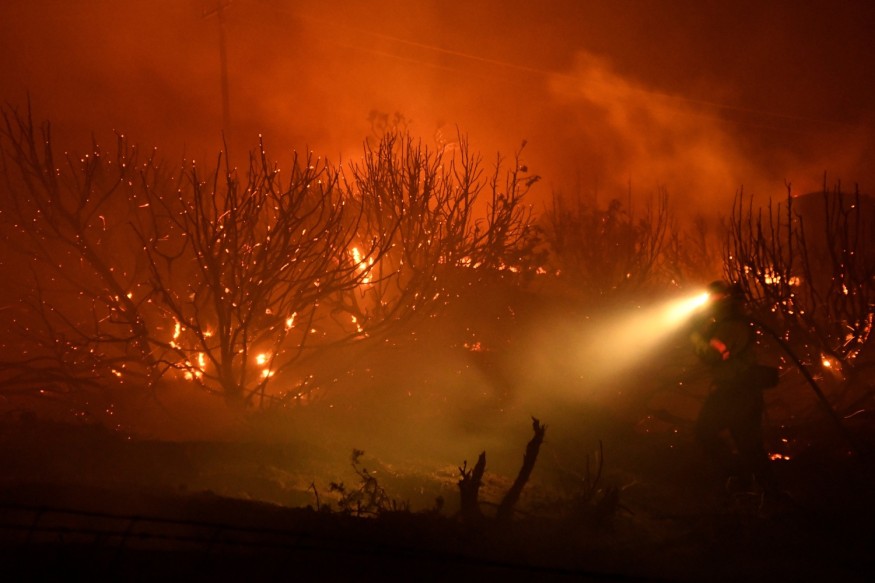Due to the warming of the planet caused by the current climate crisis, many aspects of the climate system of the Earth have lost stability and are reaching their tipping points. These include the Amazon rainforest, the oceans, and the polar ice sheets and glaciers.
Scientists believe that when one tipping point is reached, others may follow.
Many warning signs have already been signaled. The wildfires in the US have been worsened by global warming. Last July, a study warned of the Arctic's abrupt change in temperatures, a possible precursor to other drastic changes.
Last September 14, a large Greenland ice shelf was torn by the effect of the warm water underneath it. On the same day, a different study found ice shelves that protect Antarctica's two most massive glaciers from being developing crevasses and cracks. If they break, the glaciers will become susceptible to melting, increasing the rise in sea level. The worst possible scenarios are already happening in terms of loss of ice.

READ: Melting Doomsday Glacier in Antarctica Could Cause 10-Ft Sea Level Rise
The Tipping Points
Scientists have long known that a lot of factors stabilize and maintain our climate. These stabilizing factors, however, have tipping points, which, when reached, can cause significant and cascading changes that are much larger than the initial trigger. The consequences of these tipping points may be impossible to stop once they have started.
The ice sheet in Greenland is a tipping point that, when reached, will cause uncontrollable melting, which can cause sea level to rise worldwide up to seven meters.
Scientists do not know the tipping point of Greenland. According to one study, a rise in temperature of only 1.6º C is enough to do it. So far, we have already warmed the planet by 1.1º C within only two centuries.
This point of no return could take many more centuries from now, but it will be hard to reverse when that time comes. According to Potsdam Institute Germany for Climate Impact Research professor Ricarda Winkelmann, once the tipping point is reached, switching it would need much more cooling of the climate than the original hypothetical 1.6º C increase triggered the tipping point.
This is why such tipping points are considered irreversible, although they are not. It just takes a lot more "push" to reverse things.
The AMOC
Elements that cause tipping points have been called "tipping elements," which include the ice sheets in Greenland and the Antarctic, as well as the Amazon.
Another critical tipping element is the AMOC, or Atlantic Meridional Overturning Circulation, a vast ocean current carrying warm water from the equator to the Arctic region and carrying cold water from the Arctic back to the equator. If it collapses today, it will shift worldwide climate patterns all over the globe.
Interconnected Tipping Elements
A 2009 study wondered if the tipping elements are connected so that when one is triggered, another is set off, followed by another and cascading reaction that will irreversibly reshape the very nature of our climate.
An example is the melting of the ice sheet of Greenland. It causes cold water to flow to the Atlantic, weakening the AMOC and triggering the tipping point of AMOC and causing more effects down the line. Although scientists know dozens of these tipping point links, this interconnectedness is very hard to predict and simulate.
When this climate crisis reaches the irreversible cascade of the tipping points, it can change the climate of the planet in a state it has not been in for ages.
CLIMATE CHANGE: Dire Effects and the Recommendations of Caribbean Experts
Check out for more news and information on Climate Change on Nature World News.
© 2026 NatureWorldNews.com All rights reserved. Do not reproduce without permission.





